Why Israelis Are Still Infected With COVID-19 After Getting The Vaccine
Harin - Jan 06, 2021
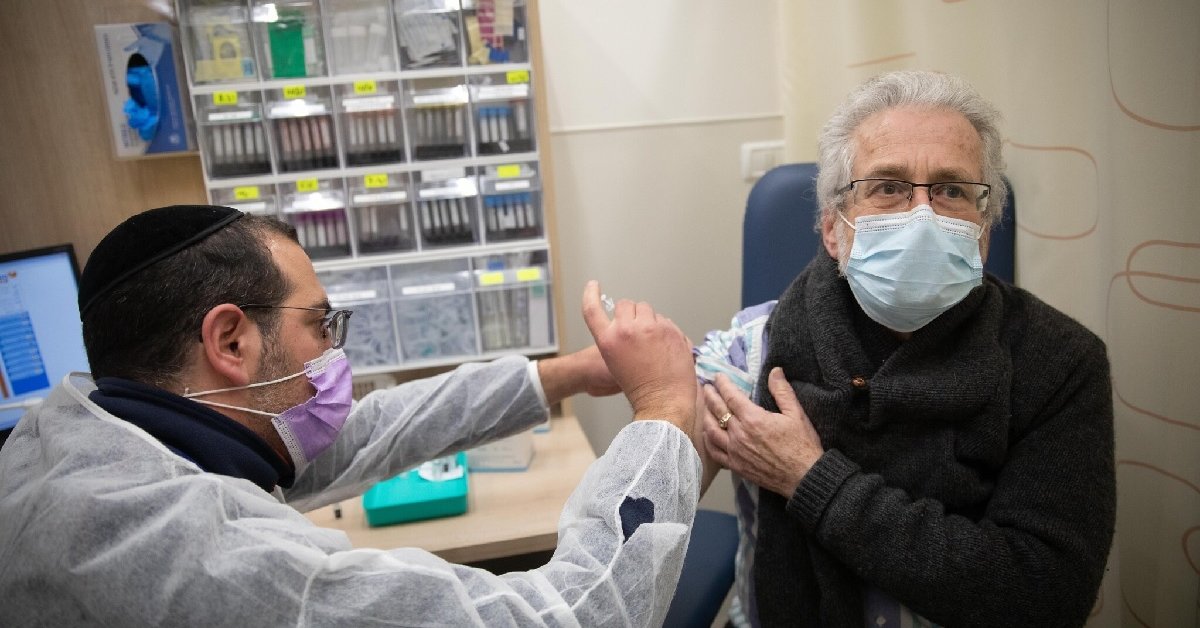
It takes up to 7 days after the second injection, 28 days after the first injection for the Pfizer-BioNTech COVID-19 vaccine to be 95% effective.
- This Man's Super-Antibody Can Be Diluted 10,000 Times But Still Works Against COVID-19
- These Indian Cities Are Under Lockdown Again In 2021
- India To Review Covishield Vaccine After Report Of Blood Clots Following Vaccination
Israel currently leads the world with its COVID-19 vaccination campaign. More than 1 million of its citizens, 12% of the population, received the vaccine doses purchased from Pfizer-BioNTech.
However, negative and misleading news started to emerge after there were reports of 240 cases of COVID-19 infection just days after vaccination in Israel. Several anti-vaxxers have cited it, claiming that the Pfizer-BioNtech COVID-19 vaccine caused these people to become infected with the coronavirus.
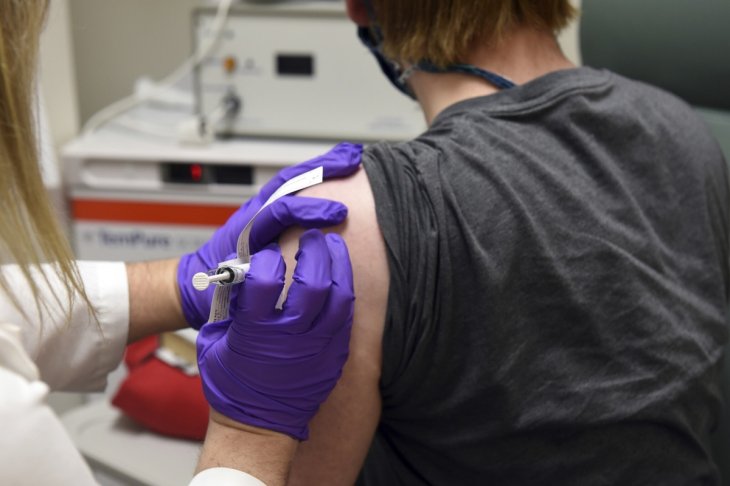
However, there are sufficient grounds to disprove this information completely. The COVID-19 vaccine is based on a 21-st century technology, and it can’t infect a person with diseases like the vaccines of centuries ago.
The question is: Why are some vaccinated people still infected with COVID-19? And how can we prevent that?
How does the Pfizer-BioNTech COVID-19 vaccine work?
To be able to understand why a small number are still infected after vaccination, we need to know how the vaccine works.
Like the biotech company Moderna, Pfizer-BioNTech also develops its vaccine using a brand new technology called mRNA. mRNA is a messenger RNA. True to its name, mRNA is like a communicator going from the nucleus of the cell containing the DNA of the helix coded that control protein synthesis to the cytoplasm. The mRNA carries the genetic encoding of the DNA outside the nucleus, informing the cell which protein they are missing.
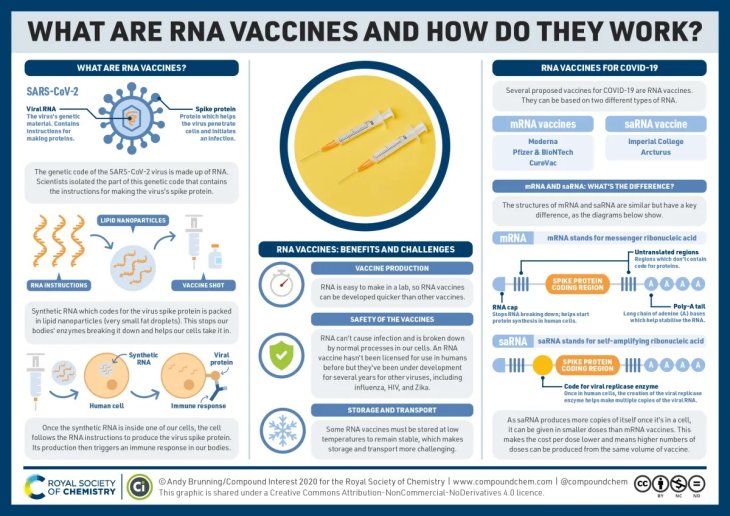
After the cell receives that information, it activates a protein-producing plant called the ribosome in the cytoplasm to produce the exact protein that the mRNA needs.
Scientists know that they can take advantage of the mRNA’s protein ordering process to turn each ribosome found in each cell into a factory producing the COVID-19 vaccine right inside the human body.
The goal is to take a genetic code of the SARS-CoV-2 virus itself and use it to design the mRNAs that can help your body produce the spike glycoproteins of the SARS-CoV-2 virus without having to inject any real virus even a weakened one.
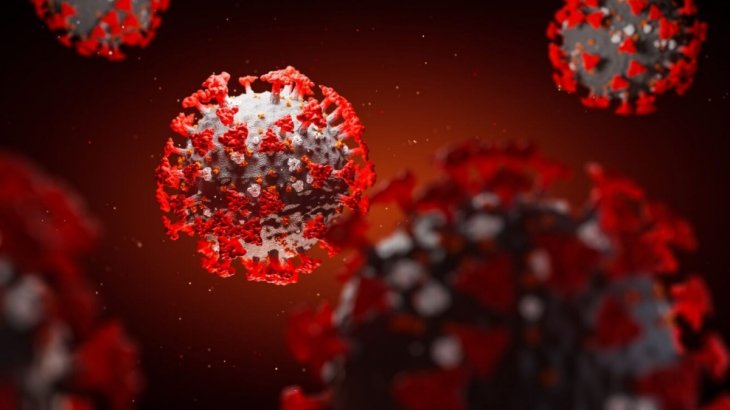
This new vaccine technology ensures two things. Firstly, you can’t get the SARS-CoV-2 virus from the mRNA vaccine because it doesn’t contain the virus, like the traditional vaccines. Secondly, your body is still trained to recognize the spike glycoproteins of the SARS-CoV-2 virus, thereby, creating antibodies against them. These antibodies will help you fight the virus and protect you from it if you are accidentally infected with it.
So why are people still infected with COVID-19 after receiving the vaccine?
As you can see, the Pfizer-BioNTech COVID-19 vaccine works by deceiving the body with mRNAs that instruct the cells to produce the spike glycoproteins of the SARS-CoV-2 virus. The process is in 5 steps:
Step 1: After injecting these mRNAs into the human body, they need to reach as many cells as possible, then instruct the cells to produce the viral spike glycoproteins, turning their ribosome into vaccine factories.
Step 2: The amount of the S glycoproteins of the SARS-CoV-2 virus in your body gradually increases until the dose is sufficient.
Step 3: These proteins activate the immune system of the body, causing the immune cells to detect them as foreign molecules.
Step 4: Immune cells produce antibodies that neutralize any spike glycoproteins that they detect including those from the mRNA and those from the real SARS-CoV-2 virus.
Step 5: It will take a while for your antibody level to be enough to counter the full load of SARS-CoV-2 virus that you might be infected with. When the spike glycoproteins are inactivated, the SARS-CoV-2 virus can’t use them to infect the cells in your body. Thus, your body will be protected against the virus.
So, the key point here is that the mRNA vaccine takes time to be effective. It needs to go through all five steps to protect you from the virus. But how long does it take for the body to produce enough antibodies?
The Pfizer-BioNTech clinical trial study shows that the window period is about 12 days after the first injection. That means 12 days after the injection, the new vaccine can start to protect you from the virus.
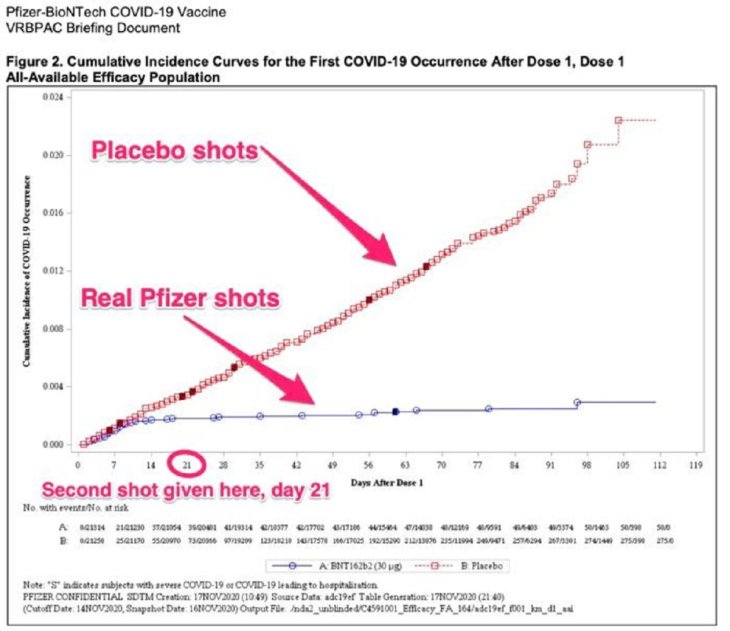
Before 12 days, the infection rates of those who received the vaccine and the placebo were the same. And after 12 days, those who received the actual vaccine were spectacularly protected.
But this protection isn’t perfect either. Trials on more than 21,000 people receiving the Pfizer-BioNTech COVID-19 vaccine in Argentina, Brazil, Germany, South Africa, Turkey, and the United States showed that between the first and second injections, the efficiency rate of the vaccine only reaches 52%. Out of the 21,720 vaccinated people, there were 39 cases of infection.
It takes up to 7 days after the second injection, 28 days after the first injection for the Pfizer-BioNTech vaccine to be 95% effective. So, it takes 4 weeks for the infection window to close tightly, protecting you from the SARS-CoV-2 virus.

It is worth noting that the 240 people infected with COVID-19 after getting the vaccine in Israel aren’t a large proportion of over 1 million people who have been vaccinated. Since the country only started its vaccination program on December 19, 2019, the cases of infection are still in the 28-day window period.
Earlier, an American nurse was also confirmed to be infected with the coronavirus after getting the vaccine. However, health experts have acknowledged that these infections are normal and are not caused by the vaccine. These people just, unfortunately, catch the virus during the window period when their bodies haven’t produce enough antibodies to fight the virus.
>>> Nearly 70% Of Indians Are Hesitant To Take COVID-19 Vaccine
Featured Stories

Features - Jan 29, 2026
Permanently Deleting Your Instagram Account: A Complete Step-by-Step Tutorial

Features - Jul 01, 2025
What Are The Fastest Passenger Vehicles Ever Created?

Features - Jun 25, 2025
Japan Hydrogen Breakthrough: Scientists Crack the Clean Energy Code with...

ICT News - Jun 25, 2025
AI Intimidation Tactics: CEOs Turn Flawed Technology Into Employee Fear Machine

Review - Jun 25, 2025
Windows 11 Problems: Is Microsoft's "Best" OS Actually Getting Worse?

Features - Jun 22, 2025
Telegram Founder Pavel Durov Plans to Split $14 Billion Fortune Among 106 Children

ICT News - Jun 22, 2025
Neuralink Telepathy Chip Enables Quadriplegic Rob Greiner to Control Games with...

Features - Jun 21, 2025
This Over $100 Bottle Has Nothing But Fresh Air Inside

Features - Jun 18, 2025
Best Mobile VPN Apps for Gaming 2025: Complete Guide

Features - Jun 18, 2025
A Math Formula Tells Us How Long Everything Will Live
Read more
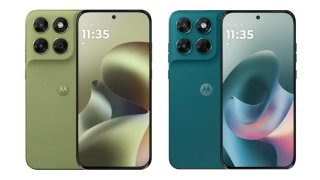
Mobile- Jan 30, 2026
Motorola Unveils Moto G67 and Moto G77: 5200mAh Battery, 6.78-Inch AMOLED Display, Prices, and Specifications
With their combination of modern features and competitive pricing, the Moto G67 and G77 position Motorola strongly in the mid-range segment for 2026.

Mobile- Jan 30, 2026
Red Magic 11 Air Debuts Worldwide: Snapdragon 8 Elite Powerhouse with Advanced ICE Cooling
Nubia's gaming-focused sub-brand, Red Magic, has unveiled its latest smartphone, the Red Magic 11 Air, for global markets.

Mobile- Jan 31, 2026
Generalist vs Specialist: Why the Redmi Note Series Remains Xiaomi's Easiest Recommendation
Redmi Note 15 series – balanced design and modern features.
Comments
Sort by Newest | Popular